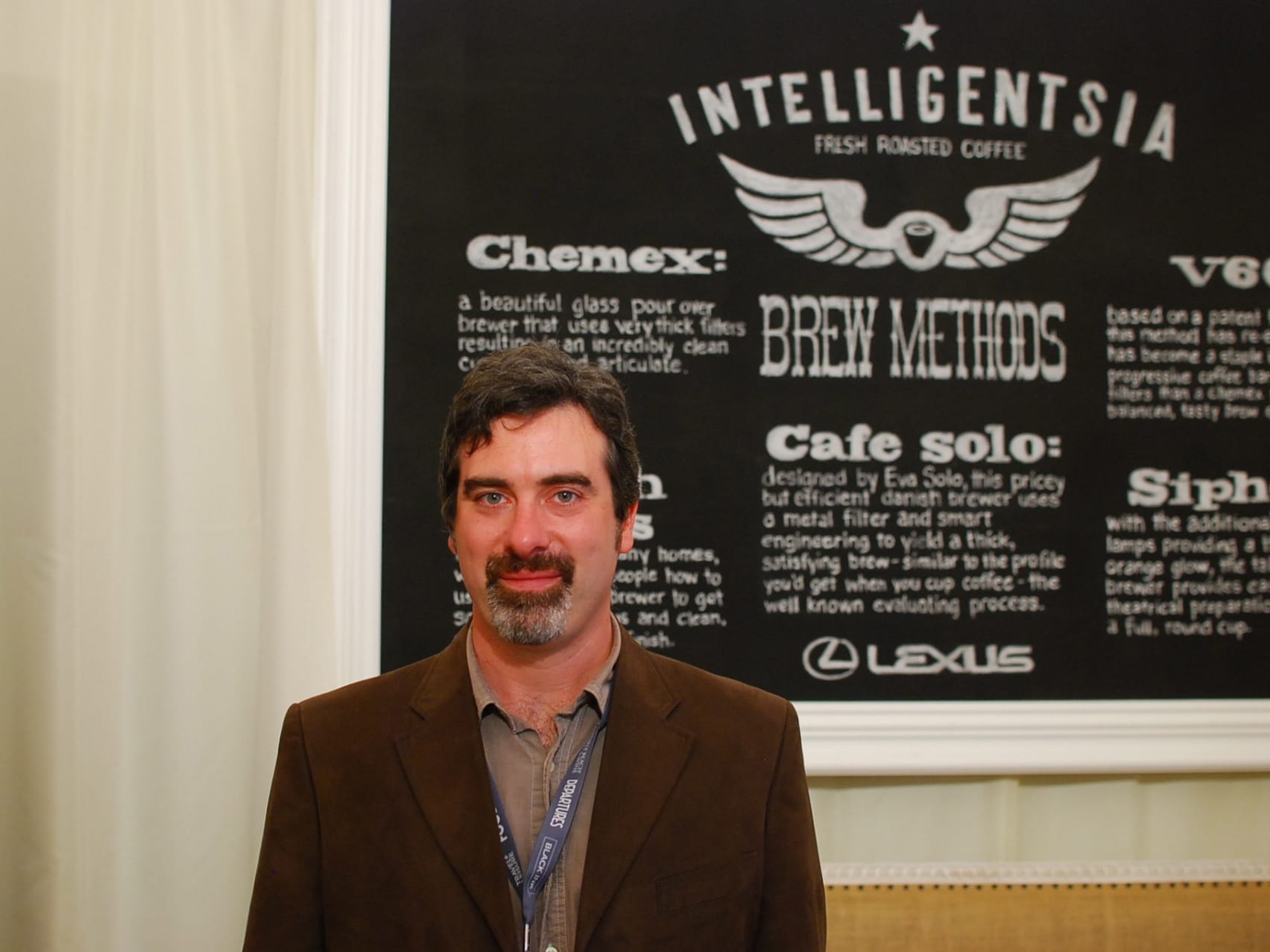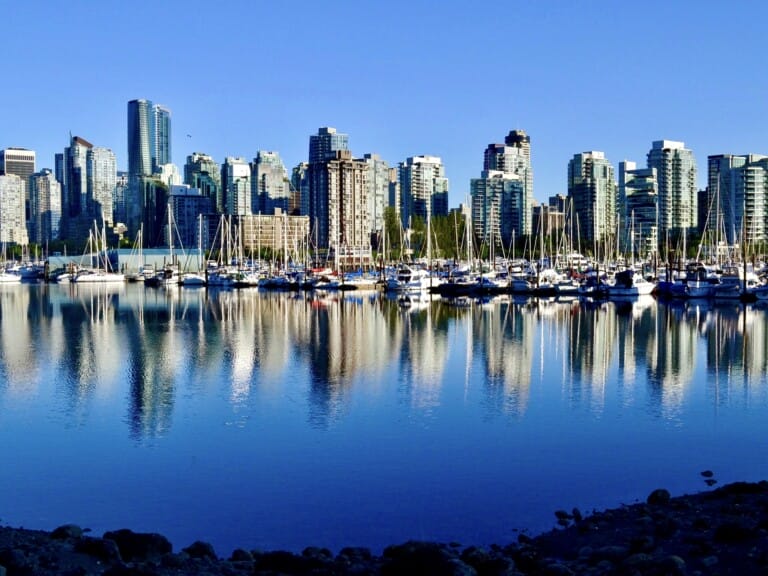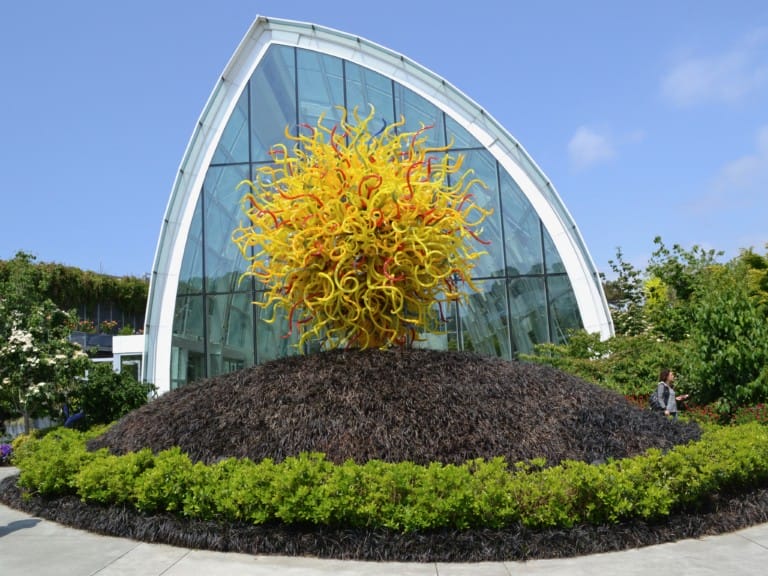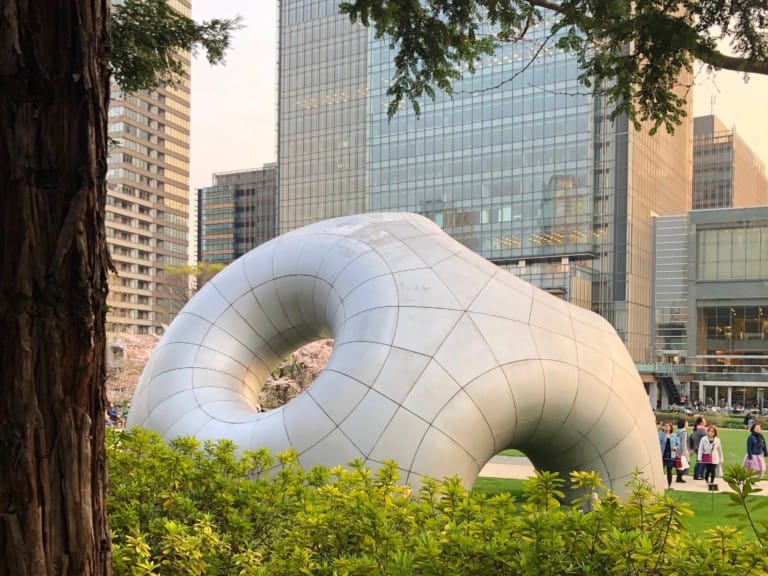Geoff Watts was one of Intelligentsia’s very first hires in the mid ’90s and has become one of the foremost green coffee buyers in the world, helping to establish a Direct Trade model alongside Intelligentsia founder Doug Zell, by working with farmers who primarily reside in Latin America and Africa. As a result, the product improves, the farmers earn more money for their labors, and infrastructure expands. Last year, Watts relocated to Los Angeles from Chicago, and he continues to spend a large chunk of his waking hours either on a plane or on foreign soil, continue to cultivate mutually advantageous coffee partnerships. We spoke on April 14 at Intelligentsia’s booth at the Pebble Beach Food & Wine Lexus Grand Tasting, and he shared insights that hinted at why he’s been successful in the coffee world.
Was it a given that you’d work with coffee for a living, or did you consider other careers?
I considered a lot of other careers, mostly music. I thought about getting into the academic world for awhile, but coffee found me in a sense. Once I got into it, my mind got made up from there.
What instrument did you play?
I was a drummer, percussion.
Do you still play?
Whenever I can, but just for messing around. My chops aren’t what they used to be.
What subject would you have considered if you had become a professor?
Philosophy. That’s what I studied in school, and that was one subject I thought I could spend a lifetime pursuing and never get bored of it, really.
Do you feel like that helps you in your approach to coffee?
It does. One of the things that’s so attractive about working in coffee is that your work is never finished. There’s absolutely no blueprint for what we’re trying to do, so every year and every five years that go by, it seems like it’s a new chapter in the evolution of specialty coffee in our collective understanding of what quality means and not just how to define it, but how to present it, and how to think about it ourselves. There’s an evolution that goes on with any coffee professional’s relationship with coffee, from the time they first start thinking about how different the flavor can be, to the time they’re actually manipulating flavors themselves, whether it’s through extraction or roasting, to a point where they understand there’s a spectrum out there. They know there’s still more that they haven’t seen yet, which will be coming down the pipeline as they get more professional and start help debating and processing coffee in the field. But then it’s a matter of beginning to define your ideal balance in coffee and define your own relationship with it. You’re exposed to so many different things, and it can all affect you in different ways, but at first, just being able to describe that experience and make sense of it, put it into words somehow. At first you have to be able to develop a sense of personal taste where you gravitate toward certain kinds of coffee, not just have a deeper appreciation for those than for others, but understand why and to be able to communicate that to other people and be able to share your preferences. That’s where a lot of people are right now in coffee. They’ve gone through a lot of different stages of relating to coffee where in the beginning the first thing you get excited about is the contrast. You want more of everything. You want more acidity. You want more fruit. You want more body in the coffee, start understanding sugar caramelization and how that affects your palate. You want more of that, and then you get to a point where you say, “Okay, now I want to dial those things back.” What interests me is the idea of balance, and to see how these things are interrelated, where that acidity and sugar caramelization intersect. That actually is the crafted element of coffee.
At what point do you feel like you established your personal preferences for coffee?
I’m still establishing them. I’ve done it for 17 years, and I have certain likes and dislikes, but that’s the challenge, every month or six months I start to find I’m thinking about coffee in another way that redefines some of my preferences. If you allow them to sink in and cement themselves, then they become biases rather than preferences. That’s the point where you stop growing as a coffee person. You begin to make up your mind about what coffee should be, or what you think it should be.
Do you remember your very first cup of coffee?
Yeah. It was probably from McDonald’s or a cup of Folgers my mom made at home. I do remember my first specialty coffee, I guess, was in Austria, as a student. I went to some coffee shops there and had a coffee called Julius Meinl, and it wasn’t necessarily great coffee, but it was the first time that coffee was presented to me as something that had a culinary aspect to it. It wasn’t just meant to be chugged or ingested for the caffeine, but had a pleasure aspect associated with it, and was meant to be enjoyed in small quantities. That was the first time I started to think about coffee in that way.
So that was kind of an epiphany moment for you?
It was, in a sense. That’s what got me hooked on drinking coffee, but then I went to school at Berkeley and that was the first time I started to see different companies presenting coffee, different roasters, where you could walk down Telegraph Avenue and find more than one roaster selling their own take on coffee. That’s the first time I actually began to think about roasting having an impact on coffee, or coffee being curated by different coffee people that had their own version or own preference for the kinds of coffee they wanted to present. And that was the first time I could go to five different places within a six-block radius and get five different coffees that were – and not having any kind of coffee experience – clearly very different. “I like that one better than that one.” Or, “I like this one over this one.” You start making choices and I think that was an epiphany moment, where I began to understand that coffee wasn’t just one thing. There’s a lot of things.
Is there such a thing as a day of typical coffee consumption for you?
INTERVIEW CONTINUED ON NEXT PAGE









Leave a Comment